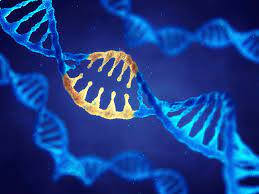DeepMind’s AlphaMissense Identifies Likely Pathogenic Mutations with 89% Accuracy

In a groundbreaking development in human genetics, Google’s DeepMind has unveiled an AI program called AlphaMissense, capable of predicting whether genetic mutations could lead to diseases or remain benign. DeepMind has released a comprehensive catalog of ‘missense’ mutations, providing a significant boost to disease diagnosis and treatment research.
Missense variants involve single-letter substitutions in DNA, resulting in altered amino acids within a protein. These mutations can significantly impact protein function, potentially causing diseases like cystic fibrosis, sickle-cell anemia, or cancer. While the average person carries over 9,000 missense variants, the majority are harmless. However, some can lead to rare genetic diseases or complex conditions such as type 2 diabetes.
The AlphaMissense catalog was developed by refining the AlphaFold model, training it to differentiate variants observed in human and closely related primate populations. Commonly observed variants are classified as benign, while unseen variants are considered potentially pathogenic. Rather than predicting changes in protein structure, the model utilizes databases of related protein sequences and structural context to assign a likelihood score between 0 and 1, indicating the probability of a variant being pathogenic.
In a study published in Science, AlphaMissense accurately categorized 89% of all 71 million potential mutation variants as either likely pathogenic or likely benign, a significant improvement compared to the 0.1% confirmed by human experts. The AI model outperformed other computational methods when applied to classify variants from ClinVar, a public repository of data linking human variants to diseases.
This achievement is poised to accelerate research in various fields, including molecular biology and clinical and statistical genetics. Traditional experiments to identify disease-causing mutations are expensive and time-consuming. However, AI predictions enable researchers to assess results for thousands of proteins simultaneously, streamlining resource allocation and expediting complex studies.
Google DeepMind is collaborating with Genomics England to explore how these predictions can aid in studying the genetics of rare diseases. Although the predictions are not intended for direct clinical use, they hold the potential to enhance rare genetic disorder diagnoses and facilitate the discovery of new disease-causing genes.
This AI breakthrough promises to revolutionize genetic research, providing a more efficient and accurate means of understanding the implications of genetic mutations on human health.